Keywords:
ethics, ecology, environment, education, life.Abstract
Two major problems, the human vulnerability and the fragility of the world, are articulated to rethink the great mutations that the present civilization experiences and what is at stake in this evolution of contemporary societies. From the global thinking posed by Edgar Morin’s theory of complexity and Emmanuel Lévinas’s questioning of the Western ontology on which a certain conception of the human and of society is based, some approaches of the so-called Ethics of the Care of Pelluchon and Leonardo and the contributions of the deep ecology of Leopold. All these contributions are contrasted and placed in the desideratum of what should provide an education that teaches “caring for the world and the art of living together”. The reflection investigates, among other things, the conditions of an education capable of training the new citizens in the skills of care and respect for life, and the ability to integrate into a planetary community without losing sight of the values of local cultures.
Downloads
References
Bancomundial.org. (s.f.). Cambio climático. Recuperado el 12 de febrero de 2016, de: http://datos.bancomundial.org/tema/cambio-climatico
Boff, L. (2012). El Cuidado Necesario. Madrid: Trotta.
Canguilhem, G. (1974). La question de l’écologie. La technique ou la vie. Dialogue, 37-44.
Carvajal, J. (2011). Ética y sensibilidad. Questionne Disputatae, 4(9), 91-98.
Carvajal, J. (2013). Violencia y alteridad. Tunja, Colombia: Fundación Universitaria Juan de Castellanos.
Carvajal, J. (2014). Trascendencia y justicia. Questionne Disputatae, 7(15), 191-202.
Derrida, J. (1989). L’Ecriture et la différence. Paris: Ed. du Seuil.
Lévinas, D. L. (1982). Iintroduit et annoté par Jacques Rolland. Montpellier: Arena.
Lévinas, E. (1961). Totalité et Infini. Essai sur l´extériorité, Martinus Nijhoff. Salamanca: Sígueme.
Lévinas, E. (1997). La genèse de Socialité et argent », Entretien préparatoire réalisé par Roger Burggraeve, Jan Van der Veken et August Van Put et la socialité de l’argent. Peeters.
Lévinas, E. (2004). Difícil Libertad. Madrid: Caparros Editores.
Morin, E. (2003). Educar en la Era Planetaria. Barcelona: Gedisa.
Morin, E. (2008). El Año I de la Era Ecológica, La tierra que depende del hombre que depende de la tierra. Barcelona: Paidós.
Morin, E. (2015). Enseñar a Vivir. Manifiesto para cambiar la educación. Buenos Aires: Nueva Visión.
Morin, E. (1996). El pensamiento ecologizado. Revista Gazeta de Antropología, 12.
Nietzsche, F. (2014). Así habló Zaratusta. España: MAXTOR.
Pelluchon, C. (2011). Éléments pour une éthique de la vulnérabilité: les hommes, les animaux, la nature. Paris: Les Éditions du Cerf.
Rodríguez, A. (2015). Clima escolar. Tunja, Colombia: Fundación Universitaria Juan de Castellanos.
Rozzi, R. (2007). De las ciencias ecológicas a la ética ambiental. Revista chilena de historia natural, 80(4), 521-534.
Teijeiro, C. Á. (2010). Del arte de vivr juntos. Nuevos paradigmas sobre convivencia, ciudadanía y política. Buenos Aires: Libros del Zorzal.
UNESCO. (2003). Carta de la Tierra. Recuperado el 1 de septiembre de 2015, de: http://www2.medioambiente.gov.ar/acuerdos/carta_tierra/La_Carta_de_la_Tierra.htm
Wiesel, J. S. (1995). Se taire est imposible. Francia: Editions mille et une nuits/Arte éditions.




